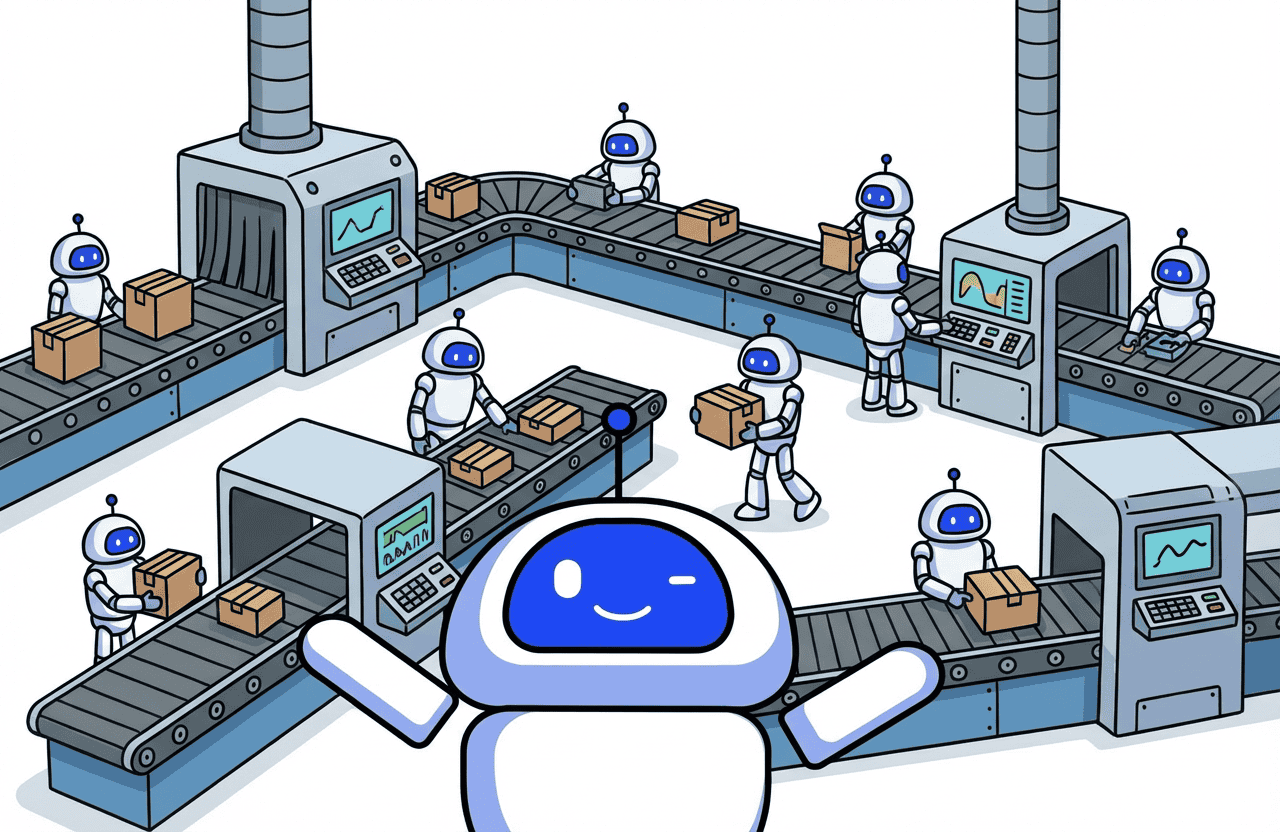In today's fast-paced business landscape, effective Workforce Management (WFM) is essential for optimising productivity, enhancing employee satisfaction, and driving success. This guide explores key attributes, common challenges, and emerging trends in WFM. Discover how technology, such as tools like Payboy’s HR and payroll software, is revolutionising workforce management. Gain practical tips to streamline processes, improve efficiency, and stay competitive. Whether you're an HR professional or a business owner, this guide offers valuable insights to navigate modern workforce management complexities.
What is Workforce Management (WFM)?
Workforce management is an integrated set of processes that organisations use to optimise the productivity of their employees. It encompasses a range of activities, including forecasting labour requirements, creating and managing staff schedules, tracking time and attendance, and administering employee performance and compliance with organisational policies.
Effective workforce management ensures that the right number of staff with the appropriate skills are available to meet the demands of the business. It balances the needs of the organisation with those of the employees, fostering a positive work environment while maintaining operational efficiency.
7 key attributes of Workforce Management (WFM)
With societal shifts and technological advancements, recognising the preferences of today’s workforce is more crucial than ever. Find out how these 7 key attributes in WFM are vital to your workforce:
- Forecasting and planning
- Accurate forecasting is the foundation of effective workforce management. It involves predicting future labour needs based on historical data, current trends, and business goals. This helps in creating a strategic plan that aligns with the company's objectives.
- Scheduling
- Creating efficient and fair schedules is critical. Scheduling should take into account employee availability, skill sets, and preferences while meeting business demands. Automated scheduling tools can significantly simplify this process.
- Time and attendance management
- Tracking employee hours accurately is essential for payroll processing and compliance. Modern WFM systems offer features like location-aware time tracking, mobile check-ins, and real-time monitoring to ensure precision.
- Leave and absence management
- Managing leaves and absences is vital to maintaining productivity. Effective WFM systems with leave management features allow for easy tracking and approval of leave requests, ensuring that there is always enough staff to cover shifts.
- Performance management
- Monitoring and evaluating employee performance helps identify areas for improvement and opportunities for growth. Regular feedback and performance reviews are essential components of this process.
- Compliance management
- Ensuring that the organisation adheres to Singapore’s labour laws and regulations is a critical aspect of workforce management. This includes adhering to working hours, overtime rules, and health and safety regulations.
- Employee self-service
- Empowering employees to manage their own schedules, leave requests, and personal information increases engagement and reduces the administrative burden on HR departments.
Common management challenges
Workforce management, while crucial for organisational success, is not without its challenges. Here are some common issues that employers might face:
Handling workforce diversity
- Managing a diverse workforce with varying skills, backgrounds, and work preferences can be challenging. It requires a tailored approach to ensure inclusivity and fairness.
Adapting to changing workforce dynamics
- The modern workforce is dynamic, with trends such as remote work and the gig economy influencing traditional management practices. Adapting to these changes while maintaining efficiency can be difficult.
Tip: Communicating and collaborating with team members who are spread out across different time zones and geographies can be challenging. But let us help you find the top 10 collaboration tools for remote teams to facilitate effective communication!
Maintaining compliance
- Keeping up with ever-changing labour laws and regulations requires constant vigilance. Non-compliance can result in significant financial and reputational damage.
Tip: As an employer, adhering to employment laws is crucial to avoid hefty fines or legal actions. Here are 6 penalties for HR non-compliance to avoid in Singapore. Read on to learn more!
Balancing employee and business needs
- Striking a balance between employee preferences and business requirements is often challenging. Ensuring fair treatment while meeting organisational goals requires careful planning and negotiation.
Employee engagement
- Keeping employees engaged and motivated, especially in remote or hybrid work environments, requires innovative strategies and continuous effort. Employers need to create a positive work culture that promotes engagement and collaboration.
Cost management
- Balancing the costs associated with workforce management, including payroll, benefits, and training, against the organisation's budget can be challenging. Employers need to find cost-effective solutions that do not compromise on quality or employee satisfaction.
Future Trends in Workforce Management
As the business landscape continues to evolve, workforce management will also undergo significant changes. Here are some trends to watch out for:
Trend #1: Increased use of AI and automation
- Automation will continue to play a vital role in streamlining workforce management processes. AI will become more sophisticated, offering predictive analytics and personalised employee experiences.
Trend #2: Focus on employee wellbeing
- Organisations will place greater emphasis on employee wellbeing, recognising its impact on productivity and retention. This includes mental health support, flexible working conditions, and wellness programmes.
Trend #3: Enhanced workforce analytics
- The use of advanced analytics will become more prevalent, providing deeper insights into employee performance and engagement. This will enable more proactive management strategies.
Trend #4: Greater flexibility and remote work
- The trend towards flexible working arrangements and remote work will continue to grow. Organisations will need to adapt their workforce management practices to accommodate these changes.
- Singapore’s Tripartite Alliance for Fair and Progressive Employment Practices (TAFEP) announced and issued the new Tripartite Guidelines on Flexible Work Arrangement Requests (Guidelines) on 16 April 2024. Effective from 1 December 2024, these guidelines mandate minimum requirements for all employers in Singapore to consider formal requests for flexible work arrangements (FWAs) from employees fairly. Explore this topic further and get valuable insights and tips in our Flexible Working Arrangements (FWA) guide!
Trend #5: Integration of HR and WFM systems
- Integrated HR and WFM systems will offer a seamless experience, from hiring to retirement. This integration will improve data accuracy and streamline processes. By leveraging HR software, companies can stay ahead of trends and stay proactive in their approach to workforce management.
How can technology help in Workforce Management?
The integration of technology into workforce management has revolutionised the way organisations manage their employees. Here are some technological advancements that have significantly impacted WFM:
- Cloud-based solutions
- Cloud-based WFM systems offer flexibility and scalability. They enable remote access to data and tools, facilitating workforce management from anywhere. By leveraging the right tools and platforms, organisations can overcome the challenges of remote work and maintain productivity.
- Mobile applications
- Mobile apps allow employees to check schedules, request time off, and clock in and out from their smartphones. This enhances convenience and improves communication.
- Project management and task tracking
- Project management software helps teams manage projects, assign tasks, and monitor progress, ensuring transparency and accountability.
- Advanced analytics
- Data analytics tools provide deep insights into workforce trends, helping managers make informed decisions. They can identify areas for improvement and forecast future needs.
- Automatic attendance and scheduling management
- Artificial Intelligence (AI) and machine learning
- AI and machine learning algorithms can predict staffing needs, optimise schedules, and identify patterns in employee behaviour. These technologies enhance decision-making and improve efficiency.
Streamline Workforce Management (WFM) with Payboy HR and Payroll Software!
As we move towards a more flexible and adaptive work environment, using advanced technology will be key to staying ahead in Singapore’s dynamic business landscape. Payboy HR and Payroll Software offers a robust solution to optimise your operations. Here’s how Payboy can help you streamline key aspects of workforce management:
Effortlessly manage and organise employee shifts, accommodating flexible work arrangements and ensuring coverage during peak hours.
Monitor employee work hours accurately with real-time attendance data, ensuring compliance with labour laws and identifying attendance patterns.
Integrate shift scheduling and attendance data into payroll processing to eliminate errors, save time, and ensure accurate and timely employee payments.
By leveraging Payboy HR and Payroll Software, you streamline workforce management processes and ensure smooth operations in compliance with Singapore’s employment laws.
Streamline your HR processes with Payboy today!
As a PSG-approved HRMS, Payboy provides a robust system to help you manage your HR tasks so that you can focus on your business and people!
With our wide range of modules, you can customise a solution to meet the specific needs of your business:
Payroll Processing | Leave Management | Claims Management | Applicant Tracking
Time Attendance | Shift Scheduling | Appraisal System | Inventory Management
Project Costing | Training Management






















